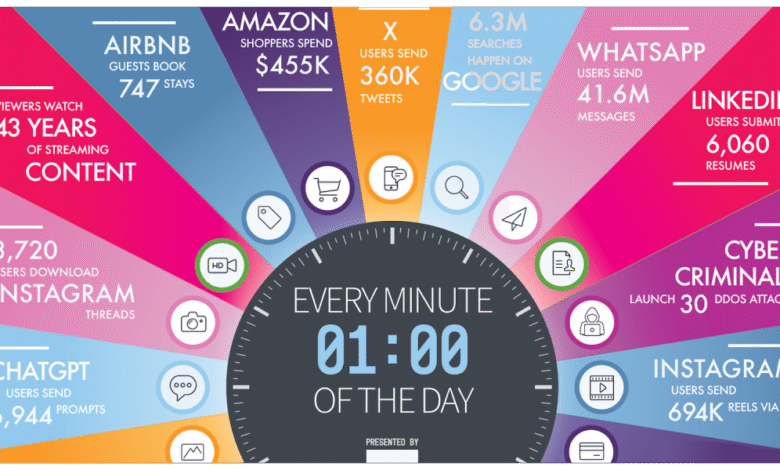Market Day in 60 Seconds: What Changed & Why It Matters

From dawn crowds gathering at Kejetia Market to late-afternoon negotiations echoing through Makola Market corridors, commodity prices fluctuate dramatically before lunchtime approaches. Your audience requires immediate insights delivered through clean, mobile-optimized video content rather than complex spreadsheets that obscure practical implications. Effective market reporting shows price movements and actionable consumer guidance while stalls remain active and shopping decisions still matter.
Structure content as micro-bulletins publishable during peak market hours when information carries maximum relevance. For clear, evidence-driven visual storytelling, CapCut mod apk provides shape masks and keyframed punch-in capabilities that spotlight crucial details like shelf price tags, purchase receipts, and product unit sizes without creating visual clutter that obscures essential information. During contextual research phases involving Ghana Statistical Service releases, ministry briefings, and vendor interviews, organize source materials using YouTube Vanced with chapter jump functionality, pinch-to-zoom precision, and per-video speed memory features that enable rapid navigation to relevant data points while maintaining crisp readability of statistical figures on mobile screens.
This comprehensive guide establishes systematic approaches to rapid market reporting that serves immediate consumer needs while building long-term audience trust through consistent accuracy and practical value delivery.
Understanding Ghana’s Market Economy Dynamics
Regional Market Characteristics
Ghana’s major markets operate as complex economic ecosystems where traditional trading practices intersect with modern supply chain pressures, currency fluctuations, and seasonal agricultural cycles that influence daily price variations across essential commodities.
Kejetia Market in Kumasi serves as West Africa’s largest open-air market, while Accra’s Makola Market functions as the capital’s commercial heartbeat. Each venue presents unique reporting opportunities requiring specific knowledge about vendor relationships, product sourcing patterns, and consumer behavior characteristics.
Price Movement Drivers
Multiple factors influence daily market prices including fuel cost fluctuations, exchange rate variations, seasonal harvest patterns, import duty changes, and regional security situations that affect transportation costs and product availability.
Understanding these underlying economic forces enables more accurate reporting that explains price changes rather than simply documenting numerical variations without meaningful context for consumer decision-making.
Pre-Market Research and Preparation
Economic Context Gathering
Monitor Ghana Statistical Service data releases, Bank of Ghana policy announcements, and Ministry of Trade briefings that provide essential context for interpreting daily market price movements within broader economic trends.
Track international commodity prices, regional weather patterns, and transportation infrastructure developments that influence local market conditions and help predict potential price movement directions.
Source Network Development
Build relationships with reliable vendors, market association leaders, and regular customers who provide authentic insights into market dynamics beyond simple price documentation.
Establish contact networks that enable rapid verification of price information, supply shortage reports, and consumer sentiment changes that affect market behavior patterns.
Real-Time Market Documentation
Strategic Price Point Selection
Focus on essential commodities that directly impact household budgets including staple foods, cooking oils, transportation costs, and basic household necessities that represent meaningful consumer spending categories.
Document price variations across different vendor stalls to capture market range rather than isolated data points that may not accurately represent overall market conditions.
Visual Evidence Capture
Master techniques for clearly documenting price tags, receipt totals, and product specifications that provide verifiable evidence supporting reported price information without violating vendor privacy or creating commercial disruptions.
Practice discreet filming methods that capture essential information while respecting market cultural norms and vendor business operations during busy trading periods.
Mobile Production Workflows
Efficient Content Assembly
Edit market reports immediately following market visits while price information remains current and vendor conversations stay fresh in memory for accurate contextual reporting.
Structure content chronologically to show market evolution throughout trading days, highlighting peak pricing periods and bargaining dynamics that influence final consumer costs.
Narrative Framework Development
Create consistent reporting templates that quickly communicate essential information including specific price changes, affected product categories, underlying causes, and practical consumer implications.
Balance factual price reporting with human impact stories that illustrate how market changes affect different income levels and household types across Ghanaian communities.
Platform Optimization for Ghanaian Audiences
Mobile-First Design Considerations
Design content for optimal viewing on basic smartphones with limited data plans, ensuring essential information remains accessible regardless of internet connection quality or device capabilities.
Use clear text overlays, simple graphics, and straightforward visual layouts that communicate effectively across different screen sizes and lighting conditions common in mobile viewing environments.
Language and Cultural Integration
Incorporate appropriate Ghanaian market terminology, local currency references, and cultural shopping patterns that resonate authentically with domestic audiences while remaining accessible to international viewers.
Balance English commentary with local language expressions and market-specific vocabulary that reflects genuine Ghanaian commercial culture without excluding diverse audience segments.
Consumer Service Focus
Actionable Information Delivery
Provide specific guidance about optimal shopping times, alternative product sources, and budgeting strategies that help consumers adapt to market price changes effectively.
Include practical tips about quality assessment, vendor negotiation approaches, and bulk purchasing opportunities that maximize consumer value during different market conditions.
Comparative Analysis Integration
Compare current prices with previous reporting periods, seasonal historical data, and regional market variations that help consumers understand whether observed changes represent temporary fluctuations or longer-term trends.
Context price information within broader economic indicators that explain market behavior while avoiding complex economic theory that may not serve immediate consumer decision-making needs.
Quality Assurance and Verification
Data Accuracy Protocols
Implement verification procedures that confirm price information through multiple sources, cross-reference with official statistics when available, and acknowledge uncertainty about rapidly changing market conditions.
Establish correction procedures for addressing reporting errors quickly while maintaining audience trust through transparent acknowledgment of mistakes and commitment to accuracy improvement.
Source Protection Standards
Protect vendor identities and business interests while gathering market information, ensuring reporting practices do not create competitive disadvantages or unwanted attention for cooperative sources.
Balance transparency about reporting methods with discretion about specific source identifications that might affect ongoing access to market information and vendor cooperation.
Community Impact and Service
Economic Education Integration
Explain economic concepts and market mechanisms that help audiences understand price formation, supply chain influences, and policy impacts affecting daily market conditions.
Connect local market reporting to broader economic literacy that empowers consumers to make informed decisions while understanding their role within Ghana’s economic ecosystem.
Advocacy and Policy Awareness
Highlight market inefficiencies, consumer protection issues, and policy impacts that affect market fairness while maintaining objective reporting standards that serve public interest.
Document infrastructure needs, regulatory challenges, and market development opportunities that could improve conditions for both vendors and consumers.
Long-Term Reporting Strategy
Trend Analysis Development
Build comprehensive databases of price information, market conditions, and economic indicators that enable sophisticated analysis of longer-term trends affecting Ghanaian consumers.
Develop predictive capabilities that help audiences anticipate market changes while acknowledging limitations of short-term economic forecasting in complex market environments.
Professional Network Expansion
Cultivate relationships with economic analysts, government officials, and industry experts who provide authoritative context for market observations while maintaining editorial independence.
Participate constructively in economic policy discussions while preserving journalistic objectivity that serves public interest rather than particular economic or political perspectives.
Ethical Reporting Standards
Balanced Economic Perspective
Present market information that acknowledges both challenges and opportunities within Ghana’s economic development while avoiding sensationalism that might unnecessarily alarm consumers or discourage economic participation.
Maintain focus on factual reporting that serves consumer interests while respecting vendor livelihoods and market stability that benefits entire communities.
Social Responsibility Integration
Consider broader social impacts of market reporting including effects on vendor businesses, consumer anxiety levels, and public policy discussions that influence economic decision-making.
Use reporting platform responsibly to promote economic understanding, consumer empowerment, and market efficiency rather than simply documenting price changes without meaningful context or service orientation.
This mobile-first approach to market reporting transforms complex economic information into accessible, actionable content that serves immediate consumer needs while contributing to broader economic literacy and market transparency within Ghanaian society.
The post Market Day in 60 Seconds: What Changed & Why It Matters appeared first on MyNewsGh.





